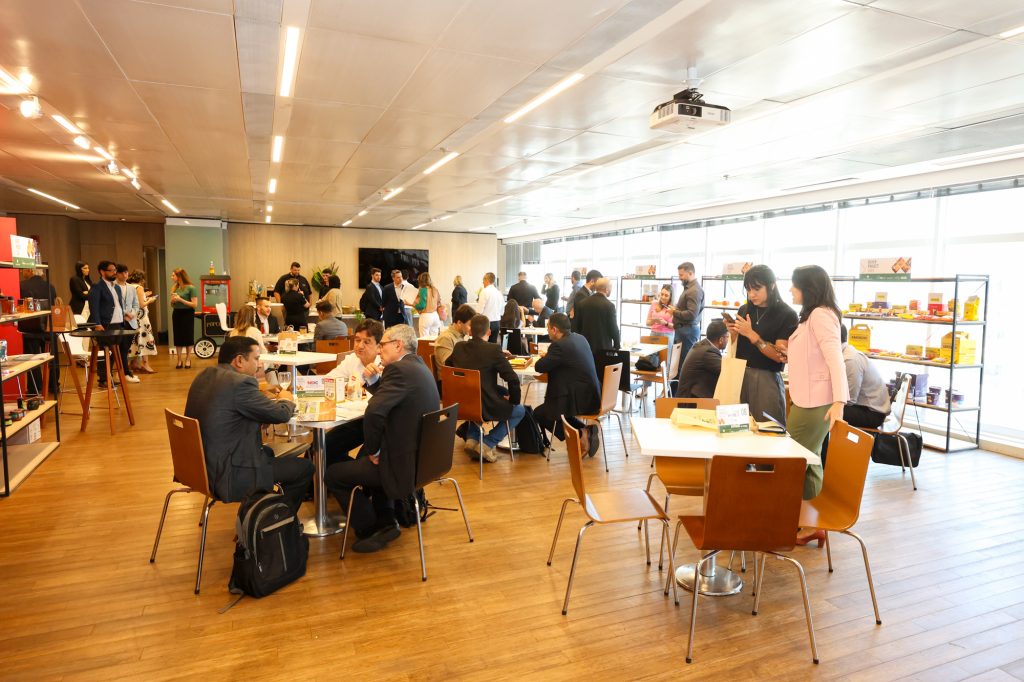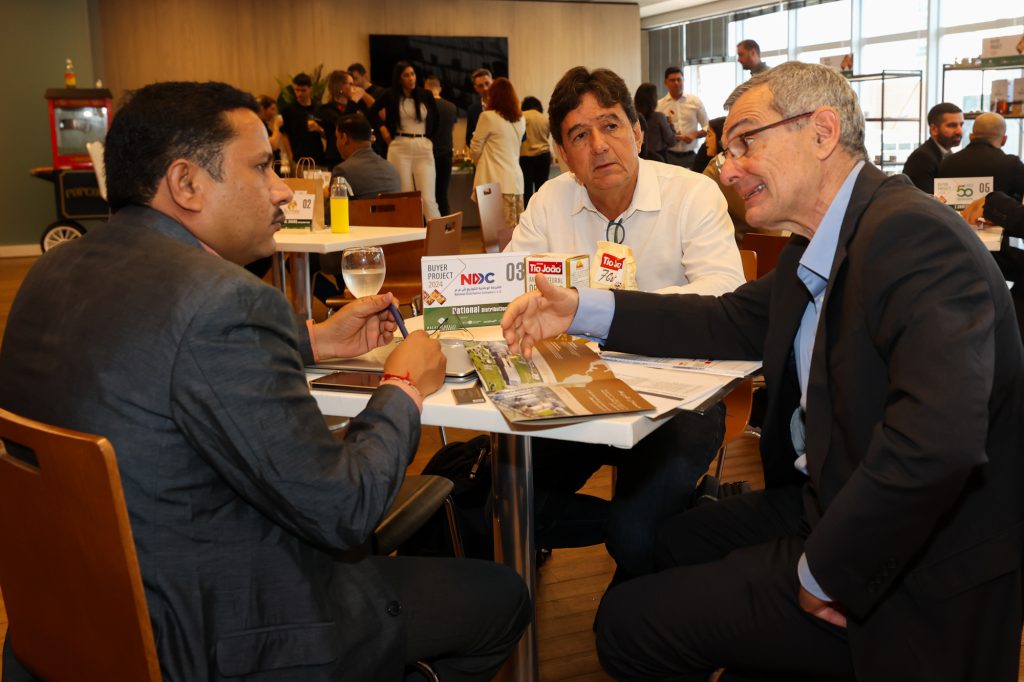São Paulo – The Arab-Brazilian Chamber of Commerce (ABCC) aided businesspeople from Rio Grande do Sul in an action to seek market in Muslim-majority countries. The institution paid the fee of Rio Grande do Sul-based companies that were registered for the Halal do Brasil project’s B2B meetings. The meetings took place from Monday (5) through Wednesday (7) in São Paulo and put exporters to negotiate with importers from Jordan, Lebanon, Malaysia, Oman, Qatar, Tunisia, and the United Arab Emirates.
The Rio Grande do Sul-based companies supported were registered for the B2Bs before the climate tragedy that hit the state last May and expressed the intention to back down from participating in the project after it.
The Halal do Brasil project that held the B2Bs is spearheaded by the ABCC and the Brazilian Trade and Investment Promotion Agency (ApexBrasil) to boost the supply of Brazilian value-added foods to countries with Muslim consumers. Rio Grande do Sul had actions of the Halal do Brasil, like a roadshow in April.

ABCC institutional relations director Fernanda Baltazar says the institution looked to Rio Grande do Sul due to the heavy rainfall and flooding that hit the state. “The ABCC believed it was necessary to foster trade and maintain the new business possibilities for the state,” she said.
So the institution decided to absorb part of the cost of the participation of companies that were already registered for the B2Bs, paying the USD 350 fee. “We did this as part of our role to foster trade. As deals are made, an entire chain is benefited in the state, and the economy rebounds,” explains Baltazar. Rio Grande do Sul is a supplier of products to the Arab market and grossed USD 1.6 billion from sales to the region in 2023.
Rio Grande do Sul-based Josapar
Josapar, a food company mostly known for its rice brand Tio João, is one of the Rio Grande do Sul-based manufacturers that have already exported to Arab and Muslim markets. The company participates in the B2Bs in a bit to expand sales, say Josapar foreign trade deputy director Luciano Targa Ferreira.
In addition to the food division that sells products such as beans, flours, cake mix, and milk powder, Josapar holding company also has the Supremo Insumos division that supplies farmers with the necessary inputs to grow foods, and real estate firm Real Empreendimentos Imobiliários.
The firm was affected by the tragedy in several ways, from having to take its fertilizer stocks from its South facility in the state to indirect causes such as the destruction of the Rio Grande do Sul logistics, as bridges collapsed and roads were blocked, hindering transport, and the problems that workers faced in their daily lives because of the flooding.

Josapar works in an integrated manner with rural farmers who supply the foods it processes and sells by supplying them with inputs like seeds and fertilizers, providing crop technical monitoring, and tracking production. “Every time a productive chain suffers, we also suffer,” international trade director Luiz Eduardo Yurgel told ANBA.
Difficulties caused by flooding, Yurgel said, included disrupted deliveries from farmers and trouble with the company’s distribution across the domestic market due to the road situation. But Josapar didn’t stop exporting, as it ships from a port that was unaffected by the flooding, Port of Rio Grande, in the state’s south region, where the company also operates. The foods benefited by the company in other regions aside from the state’s south reach the port via coastal navigation.
“We made sure to participate in this B2B because of the relevance of the Arab market for us,” Ferreira told ANBA. Josapar exports to Arab countries like Saudi Arabia and has shipped to others like Iraq, Lebanon, and the UAE. The company wants to take up markets it is not selling to anymore and expand export to current destinations.
Events across the states
The B2B meetings are part of the Buyer Project, which invited importers from Muslim-majority countries to come to Brazil for meetings with Brazilian firms, as well as other activities that’ll allow them to get a closer look at the country’s value-added food production. From Thursday (8) through Saturday (10), the group will visit Minas Gerais, Goiás, and Paraná.
Read more:
Malaysia: A potential market for Brazilian foods
Price, quality take Brazil to Islamic markets
Halal project’s action engages Brazilian states
Translated by Guilherme Miranda




